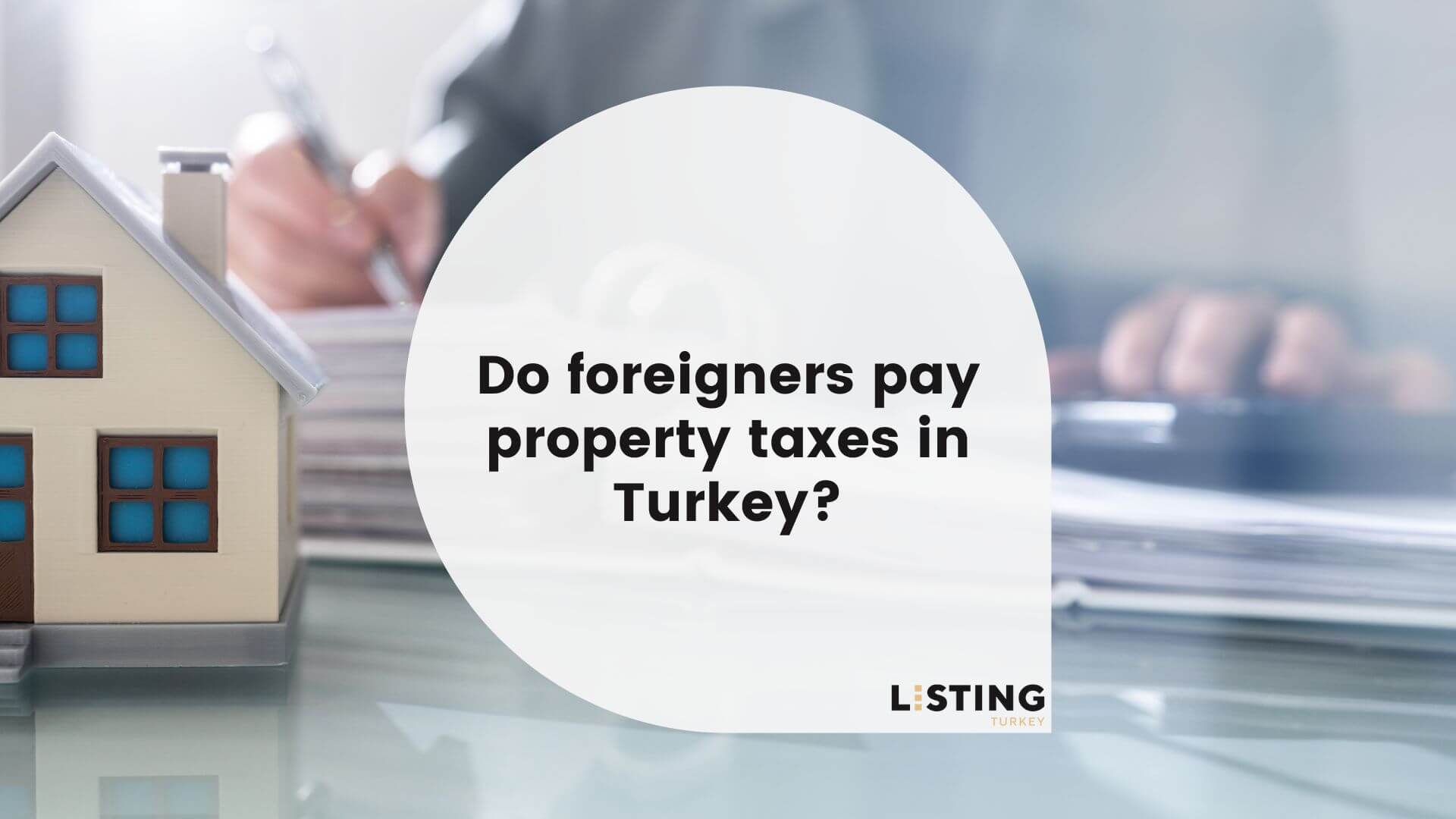As an international investor, you may have questions about whether foreigners are required to pay property taxes and how much they are. In this blog post, we’ll provide a comprehensive overview of property taxes in Turkey for foreign investors. If you’re considering investing in property in Turkey, it’s important to understand the country’s property taxation system.
Do foreigners pay property taxes in Turkey?
The short answer is yes, foreigners are required to pay property taxes in Turkey just like Turkish citizens. The amount of property tax owed is based on the value of the property and is calculated by the local municipality. In addition to property taxes, foreign property owners may also be required to pay other taxes such as land registry fees and value-added tax (VAT) on the purchase of the property.
However, there is a tax exemption available for foreign property owners in Turkey under certain conditions. According to the Turkish government, foreign citizens who buy property in Turkey and use it as their primary residence for at least 183 days per year are eligible for a property tax exemption for the first three years after the purchase. This exemption applies to both the land and the building on the land, and it is calculated based on the value of the property. In order to qualify for the exemption, the property must be registered in the name of the foreign citizen, and they must provide proof of residence, such as a utility bill or rental contract, to the local municipality.
It’s worth noting that the tax exemption and tax on rental income are subject to change and may vary depending on the laws and regulations of the local municipality. Therefore, it’s crucial to consult with a tax professional or real estate attorney when purchasing property in Turkey to ensure that you understand all of the taxes and fees that may be required, as well as any exemptions that may apply.
How much is property tax in Turkey?
The property tax in Turkey is typically %4 of the sales price of the property, which is usually divided equally between the buyer and seller, resulting in a tax rate of %2 for each party. However, as mentioned earlier, it is important to note that foreign property owners may be eligible for a property tax exemption for the first three years after purchase under certain conditions.
It’s also worth noting that foreign property owners in Turkey who decide to rent out their property will be required to pay income tax on the rental income earned. The tax rate for rental income varies depending on the owner’s tax residence status and the amount of rental income earned. It’s important to consult with a tax professional or accountant to ensure that you are aware of the tax obligations for rental income and to ensure compliance with the tax laws in Turkey.
In addition to property tax, foreign property owners in Turkey may also be required to pay other taxes such as land registry fees and value-added tax (VAT) on the purchase of the property. Land registry fees are typically around %1 of the property’s value, and VAT is 18% on new properties and 1% on second-hand properties.
It’s also worth noting that Turkey has implemented a property tax reform in 2020, which has introduced new property tax rates. Under this reform, the property tax rate for primary residence is 0.1% of the property value, and the tax rate for second homes and commercial properties is 0.2% of the property value.
In conclusion, property taxes in Turkey can be a bit complex for foreign investors to understand. However, as long as you’re aware of the taxes and fees that may be required, and any exemptions that may apply, you should be able to navigate the system without any issues. It is always recommended to consult with a tax professional or real estate attorney when purchasing property in Turkey to ensure that you are fully informed and compliant with the tax laws and regulations.
Featured Properties in Istanbul
In summary, foreign investors are required to pay property taxes in Turkey just like Turkish citizens. The amount of property tax owed is based on the value of the property and is calculated by the local municipality. However, there is a tax exemption available for foreign property owners in Turkey under certain conditions, such as using the property as their primary residence for at least 183 days per year. The property tax rate is typically %4 of the sales price of the property, but it is important to note that this rate and the exemptions are subject to change and may vary depending on the laws and regulations of the local municipality.
In addition to property tax, foreign property owners may also be required to pay other taxes such as land registry fees and value-added tax (VAT) on the purchase of the property. Furthermore, if a foreign property owner in Turkey decides to rent out their property, they will be required to pay income tax on the rental income earned.
Overall, investing in property in Turkey can be a great opportunity for foreign investors, but it’s important to be well-informed about the country’s property taxation system in order to make informed decisions and ensure compliance with the tax laws. By consulting with a tax professional or real estate attorney, foreign investors can navigate the property taxation system in Turkey with confidence and make the most of their investment.
We are working beside you, so our investors can find their dream property listings without paying any extra cost or commission.
Connect With Us: Facebook – Instagram – YouTube – Twitter – Medium
Check Out: Properties For Sale, Properties For Sale Kadikoy, Properties For Sale Kagithane, Properties For Sale Sisli

